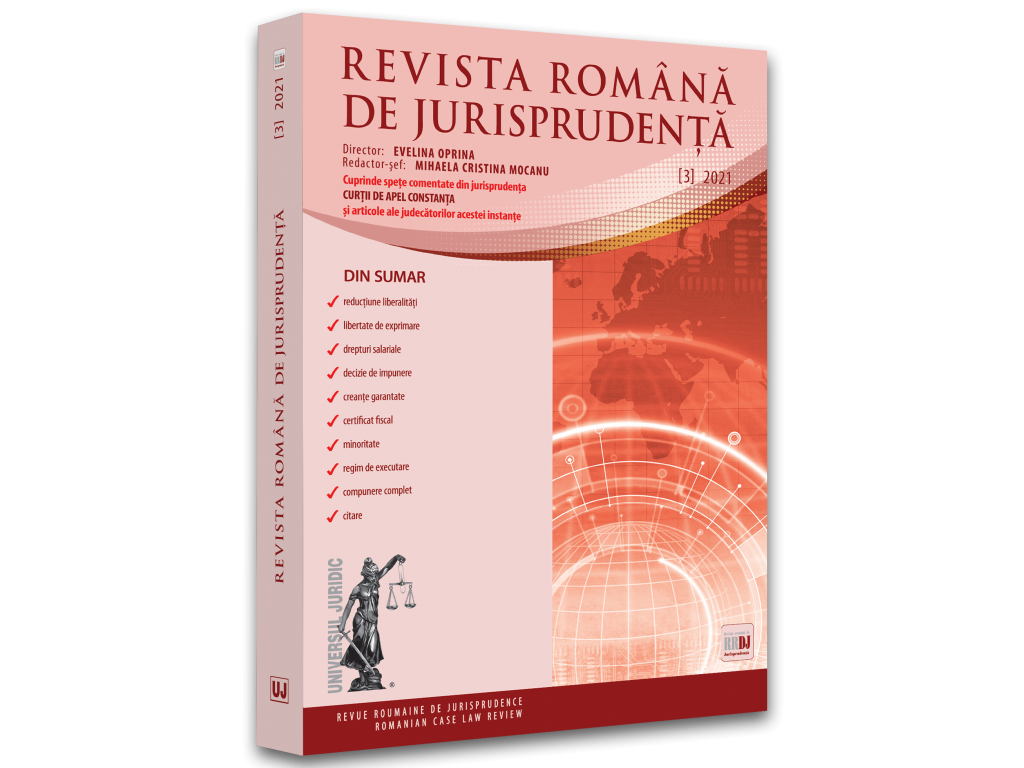Application in time of the Decision of the Constitutional Court of Romania no.231/2021, on the finding of unconstitutionality of Article 13 paragraph 5 of GEO no.43/2002 on the National Anticorruption Directorate.
DREPT PENAL ŞI DREPT PROCESUAL PENAL
Abstract
Decision CC No 231/2021, on finding the unconstitutionality of Article 13 para. (5) of GEO no. 43/2002, on the National Anticorruption Directorate, does not contain provisions on the application in time of the cases pending before the judicial bodies, which means that the effects of this decision can only be produced for the future, according to Art. 147 para. (4) of the Romanian Constitution.
In the absence of any clarification of the effects of this decision on the procedural acts already carried out, the nullity of the criminal proceedings in the pending case could only operate on the basis of another decision of the CC, namely that No 302/2017, which does not contain provisions on the application in time of its effects in cases pending before the judicial bodies and which found the unconstitutionality of the legislative solution contained in the rules of Article 281 para. (1) letter b) of the Criminal Procedure Code, which does not regulate in the category of absolute nullity the violation of the rules on the jurisdiction of the criminal prosecution body according to the subject matter and the capacity of the person. The Constitutional Court holds that, following the publication of this decision, an unconstitutional legislative solution has been removed from the active substance of the legislation and that, subsequently, the judicial bodies, in particular the courts, have at their disposal legal mechanisms to correct the negative consequences arising from the application of these legal provisions.
Decisions of the Constitutional Court have similar effects to a legislative amendment. Since their publication in the Official Gazette, it has been considered that the legislative solution considered by the Court as constitutional is regulated in positive law and that the unconstitutional legislative solution is implicitly repealed. The decisions cannot have any effect other than that of the adoption of a new law enshrining the legislative solution imposed by the Court in its decisions. This follows both from the provisions of Art. 147 para. (4) of the Constitution and Art. 15 para. (2) of the Constitution, which enshrine the principle of non-retroactivity of the law and the exceptions to this principle. Therefore, since in our law the decisions of the Constitutional Court produce effects only for the future, the rule is that they cannot be applied to previous facts or legal acts.








